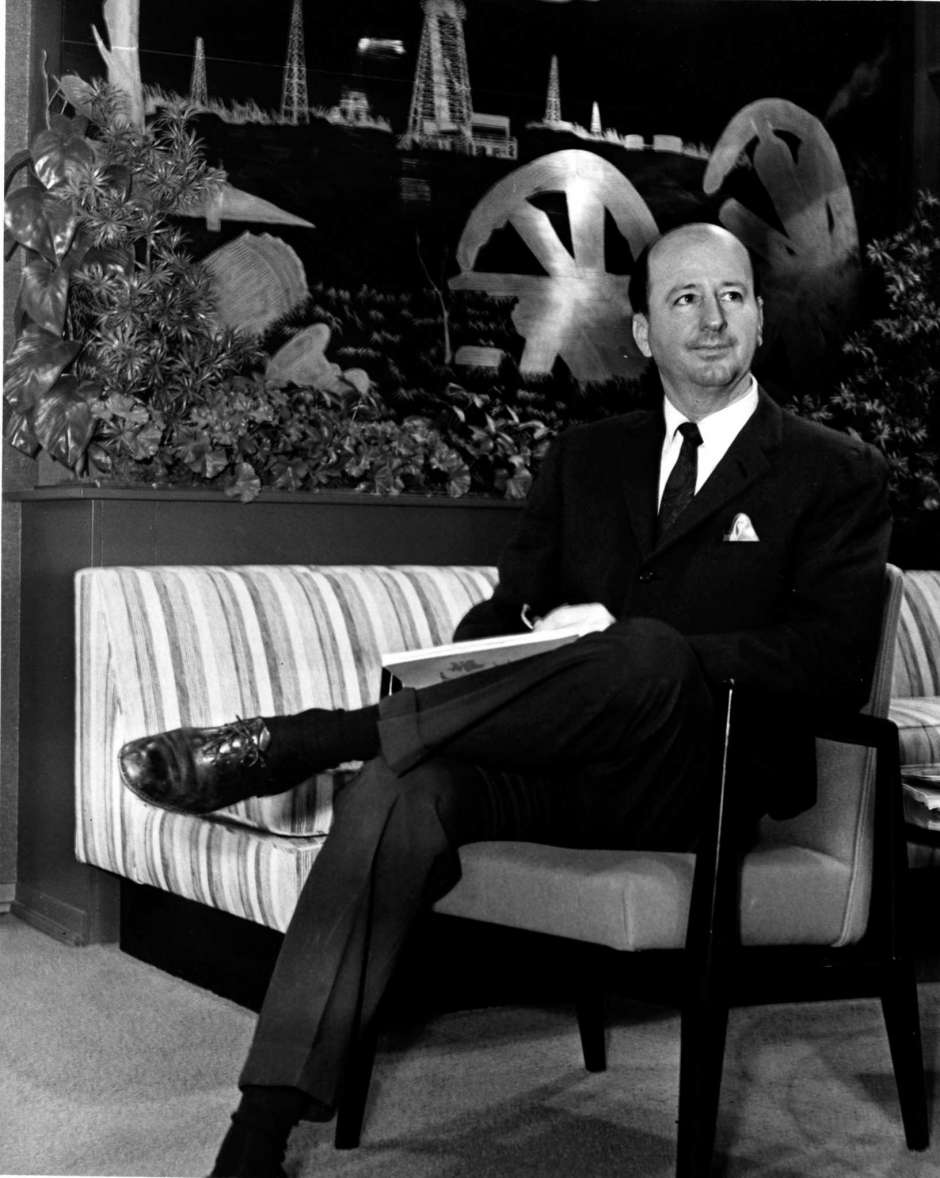Opinion: The oilman who loved sustainable energy

On Tuesday, George P. Mitchell would have turned 100 years old. After his death at 94 in 2013, this newspaper declared him the “Houstonian of the Century” — not the 20th century, in which he lived most of his life, but the 21st, which his legacy will help define.
The list of words describing Mitchell is lengthy — oilman, philanthropist, developer, sustainability pioneer, environmentalist, entrepreneur, futurist, Renaissance man, visionary. Some of the labels seem contradictory because Mitchell was a man of incongruous passions.
He was an oilman who spent millions protecting whooping crane habitat, a wildcatter who befriended renown physicist Stephen Hawking, the father of 10 children who worried about overpopulation, a businessman who was slow to pay his bills yet who shared his wealth generously with employees and charities, a developer who cared more about solving urban ills than selling big expensive houses, a demanding boss known for shouting matches with his top lieutenants but who most employees saw as approachable and even shy.
If you drive a car or turn on a light switch, you’ve benefited from Mitchell’s persistence. His development of hydraulic fracturing, which unlocked vast new domestic reserves of oil and natural gas, saved every American household more than $2,000 a year in energy costs. If you’ve enjoyed a weekend on the Strand in Galveston, watched a women’s professional tennis match or strolled through the green space of a walkable neighborhood, you’ve been touched by Mitchell’s legacy. In a few years, thanks to his generosity, astronomers will use the most powerful telescope ever built to look for signs of life in the deepest reaches of space.
How could so many different and seemingly conflicting interests reside inside the same man? One thread unites these apparent paradoxes — a love of ideas.
Insurmountable challenges captivated George Mitchell. His business success made him a billionaire, but he loved ideas more than profit. Make no mistake, Mitchell understood the need to make money. He pursued a career in energy because he saw it as more lucrative than his first choice, physics, and his mother’s wish, medicine. He needed money to pull himself out of the financial struggles of his childhood. Later, he needed it to provide the platform for pursuing bigger dreams.
But profit was a means to an end. The money he made from his natural gas discoveries he plowed into The Woodlands, making it a model for other planned communities and pioneering concepts of sustainable development. Today, it’s one of the most livable cities in America because he paid more attention to the details than the financial returns. He sank another $1 billion or so into finding a way to use hydraulic fracturing to extract natural gas from shale formations — and idea most geologists thought was folly.
Natural gas, Mitchell believed, was the fuel of the future, the energy that would wean us off of oil. In another of his many paradoxes, Mitchell grew increasingly concerned about the world’s dependence on the fossil fuels from which he made his fortune. “We should be working on alternatives,” he told a reporter in 1991. At the time, alternatives like wind and solar power cost far too much to compete with oil and natural gas. But the advent of fracking changed energy economics and did more than any other technology to usher in the era of renewables.
When the sun doesn’t shine or the wind doesn’t blow, generators powered by natural gas, produced from fracking, kick in to offset the lost power faster and more affordably than coal-fired or nuclear power plants.
But Mitchell also worried about fracking’s long-term impact and the industry’s haphazard drilling practices, and he called for reasonable restrictions.
Today, the foundation that bears his name carries on that legacy. On May 2, the day Mitchell was inducted into the Petroleum Hall of Fame in Midland, it unveiled an initiative to reduce the impact of energy development on the communities and landscape of the Permian Basin, one of the world’s most concentrated regions for oil, gas and wind energy production.
Mitchell would have believed that the problems we now associate with fracking were simply new challenges to be solved, the next step in our energy evolution. By addressing that impact, we will find new answers that will lead to a better, more sustainable future.
Rather than debate fracking, though, let’s honor the intellectual curiosity Mitchell loved. Where better to do that than in the city that fueled his success? Houston has always been defined by big ideas, and it has long been a place where visionaries like George Mitchell can thrive. It’s a city that runs on collective brainpower that few others can match.
On Tuesday, as we consider how George Mitchell’s legacy will shape this century — in energy, in sustainability, in cosmology, in philanthropy — let’s also take a moment to ponder the impossible, the unlikely, the unorthodox and even the quixotic. Let’s pause, look to the future and ask ourselves that most important question: “What if….?”
Loren Steffy formerly served as the business columnist for the Houston Chronicle and was Texas bureau chief and a senior writer for Bloomberg News in Dallas for 12 years. His latest book, “George P. Mitchell: Fracking, Sustainability and an Unorthodox Quest to Save the Planet,” will be published by Texas A&M University Press in October.

NEWS
Hide Full Index
Show Full Index
View All News